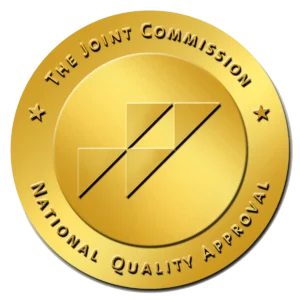Psychosis is a collection of mental health symptoms that can be associated with several different diagnoses. During an episode of psychosis, a person may struggle to accurately identify what is real and what is not. At The Pavilion in Williamsburg, Virginia, we have treated many patients whose conditions led to them experiencing psychosis. This experience can be scary and stressful not only for patients, but also for their loved ones, who may not be sure how best to help them during this difficult time.
What Psychosis Looks Like
The symptoms of psychosis don’t typically occur suddenly or without warning. Often, there will be slow changes in behavior over time, which develop into:
- Suspiciousness or paranoia
- Difficulty thinking clearly or logically, believing things that are clearly not true
- Numbness and lack of feelings
- Incredibly intense or unusual feelings and ideas
- Difficulty distinguishing between fantasy and reality
- Seeing, hearing, or feeling things that no one else is experiencing
- Speech that seems confused and does not make sense
These symptoms are often accompanied by other red flags, which aren’t part of the psychosis specifically, but can point to a decline in functioning and an overall increase in mental health symptoms:
- Sleep disruptions
- Decline in personal hygiene
- Poor emotional regulation
- Lack of motivation
- Sudden drop in school or work performance
- Withdrawing and becoming isolated from others
Who Develops Psychosis
It is believed that people who develop psychosis already had the potential to do so while in utero, but a triggering event often causes the symptoms to manifest. Most people who experience psychosis have their first episode in their late teens to mid-twenties, though it can happen younger or older, depending on the cause of psychosis. Some people experience only a single episode of psychosis, while others may have episodes throughout their lives. Psychosis may be the result of:
- Genetics
- Sleep deprivation
- Substance use
- Differences in brain structure or function
- Exposure to stress and trauma
- Postpartum distress
- Mental health conditions including schizophrenia, bipolar disorder, depression, dementia, and Parkinson’s disease
How Psychosis is Treated
The sooner a person experiencing psychosis is diagnosed and begins treatment, the better their prognosis will be for recovery. The treatments most commonly utilized for addressing psychosis include antipsychotic medications and managing other conditions that could be contributing to the psychosis. Coordinated specialty care can also give the patient, their family, and their professional support team the opportunity to work together to build whatever structures the person needs to succeed. This might include:
- Individual therapy
- Group therapy
- Supported employment and education services
- Case management
- Specialized housing supports
Ruling Out Other Causes
Some medical conditions can cause symptoms similar to psychosis, but because they originate from physical conditions, they need to be treated with different approaches. For this reason, patients exhibiting what appears to be psychosis can often benefit from medical evaluation and testing to rule out health issues as a cause of their symptoms before they begin psychiatric treatment. This might include:
- A thorough personal and family medical history
- Blood work
- Urinalysis
- Testing the functioning of various organs
- Imaging tests like an MRI, CT, or EEG
While psychosis generally has a gradual onset, medical conditions that present like psychosis often show up suddenly, so it can be helpful to share this information with your loved one’s medical team. It is also important to share if you are aware that the person’s symptoms showed up while they were receiving medical care for a health issue, versus going through a difficult life situation, which can help doctors more quickly pinpoint underlying causes.
Chances of Recovery
Regardless of whether a person is experiencing psychosis or similar symptoms as the result of a medical issue, their prognosis for recovery improves the more quickly they receive treatment. Responding quickly can also reduce the chances of the person attempting suicide. In one study, nearly a third of people who experienced psychosis reported having attempted to end their lives at some point, and 7 percent had made an attempt in the prior month. Patients with psychosis and schizophrenia were at particularly high risk for completing suicide.
At The Pavilion, we provide inpatient care for adults and seniors who are experiencing mental health crises or severe psychiatric symptoms. We offer trauma-informed, intensive, individualized, short-term care in a structured, supportive environment. We collaborate with local providers to coordinate care and plan for the patient’s discharge to ensure care continues after a patient leaves our program and returns to the community.






